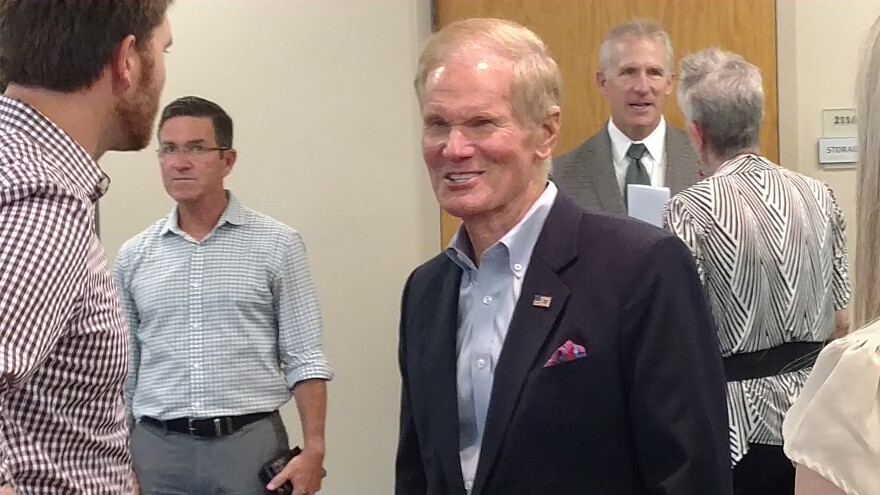The Trump administration is calling for a vast expansion of offshore oil and gas drilling from the Atlantic to the Arctic oceans, including opening up federal waters off the coast Florida.
Thursday’s announcement comes in response to President Trump's executive order in April encouraging more drilling rights in federal waters.
“Our country is blessed with incredible natural resources, including abundant offshore oil and natural gas reserves,” said Trump last April. “But the federal government has kept 94 percent of these offshore areas closed for exploration and production.”
Interior Secretary Ryan Zinke says the more than 40 sites are under consideration in the five-year plan include the East Coast from Maine to Cape Canaveral, Florida; Alaska, California, and the eastern Gulf of Mexico.
That’s drawing fire from Florida Senator Bill Nelson.
“We thought we had put this puppy to bed last year, when the Obama administration backed off its plans to have these drilling areas,” said Nelson. “They backed off because of the opposition. The stakes are exceptionally high; we simply can’t risk it.”

Speaking on the Senate floor, Nelson pointed to the 2010 Deepwater Horizon explosion, where the winds shifted and took the leaking oil east of the rig’s location off Louisiana.
“It got as far as Pensacola Beach; and it completely blackened the white, sugary sands,” Nelson said. “For one solid year the tourists did not come to the west coast of Florida because they had seen those pictures.”
Scientists contend that the effects of the BP oil spill are still being felt in the Gulf. Along those lines, Nelson urged colleagues to support legislation filed earlier this year, which would block attempts by the administration to open the coast to drilling.
And he adds that both the Pentagon and local businesses get it.

“They don’t want it, because of the military areas,” Nelson said. “But chambers of commerce, they have awakened to the fact that oil on beaches is a killer of our economy.”
Both houses of the Florida Legislature are expected to consider a resolution in the upcoming session, aimed at keeping the eastern Gulf of Mexico open for military training. Senate Resolution 550 is sponsored by Gulf Breeze Republican Doug Broxson.
“We know that off the Port of Pensacola is what they call the ‘Destin Dome,’” says Broxson. “They think [there are] about 20 trillion of cubic feet of natural gas, so it’s considered one of the most productive parts of the Gulf. But it doesn’t compare with what our commitment to the military is.”
The eastern Gulf has been a military training and weapons training site since the end of World War II. Broxson says they want to send a message to Washington that Florida is totally committed to protecting the military mission.
“There’s no place in the world where they have that kind of latitude to move not only the equipment – the F-35 [aircraft] and the weaponry,” Broxson says. “But it goes all the way from really Pensacola, down to Key West.”
“Floridians understand this issue; that’s why in the past, we’ve had such bipartisan agreement to keep drilling off of our coast,” said Sen. Bill Nelson. “But if Big Oil gets its way, every inch of the Outer Continental Shelf is going to be drilled.”
The Interior Department plans a 60-day public comment period on the proposal. Governor Rick Scott, normally a Trump political ally, plans to express his opposition to the plan.

